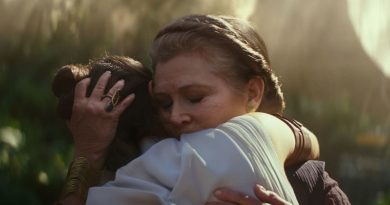Minding the Blind Spots: Learning From Many Points of View
This past week David Gaider, the lead writer for Bioware’s Dragon Age, wrote about the importance of female perspective in the creative process. During the peer review of a plot, a female writer brought up a storytelling point that she felt could be “interpreted as a form of rape.” After she raised the issue, all the other women in the discussion agreed. From Gaider’s Tumblr (via TheMarySue.com):
It wasn’t intended that way. In fact, the writer of the plot was mortified. The intention was that it come across as creepy and subverting… but authorial intention is often irrelevant, and we must always consider how what we write will be interpreted. In this case, it was not a long trip for the person playing through the plot to see what was happening at a slightly.
…
All good, right? That’s what these reviews are for.
Here’s the thing: after the meeting was over, it struck me how sharply divided the reviewers were on gender lines. The guys involved, all reasonable and liberal-minded fellows I assure you (including me!) all automatically took the intended viewpoint of the author and didn’t see the issue.
Kudos to Gaider for bringing this aspect of the creative process into the open. A greater variety of perspectives is exactly what creative teams need. Brenda Chapman recently wrote about being the first woman story artist hired by Disney:
Looking back, I can see now that my inherent “femaleness” may have had an effect on my work and the work of those around me. I think by just having my presence in the room, and because we had such a mutual respect for each other, the men were more aware of what might be condescending, or to put it bluntly, “sexist” toward women in their work. Or… as I assumed at the time, it could have just been that they were all just really nice guys who had open minds. Who knows? Whatever the reason, we all seemed to work together trying to move the Disney fairy tale into a more contemporary point of view for the heroines – and the audience.
Chapman makes reference to “a more contemporary point of view” and Gaider to “liberal-minded fellows.” During this heated election season, the world expressed outrage at Todd Akin’s callous and less-than-contemporary notions about rape. Across social media, plenty of liberal-minded individuals very loudly decried Akin’s sexist remarks. Among them were geeks and storytellers, including storytellers who have produced less-than-contemporary – no, let me correct that: sexist – tropes. Not all of them were men. As Twilight best illustrates, even women who write bestsellers that become blockbluster movies are capable of perpetuating tropes that undermine women.
Yes, people like Akin bother me as a woman, but his blatant ignorance is easy enough to counter. I’m also not overly troubled that people sometimes write things that they did not intend to be harmful, as happened with the Dragon Age writer. What is truly scary, though, is when storytellers aren’t willing to look at what they’ve produced from the perspective of the audience. It might be a man who sees himself as liberal-minded and therefore believes his work isn’t coming across as inadvertently sexist, or a woman who thinks because she’s a woman she couldn’t possibly produce something that undermines her own gender. Both situations can and do happen. It’s easy to confuse liberal with contemporary; they aren’t the same thing. The modernization of storytelling will require writers, artists, producers, directors, and editors to be willing to perpetually challenge their own points of view to keep up.
Creating stories is like driving a bus – awareness of blind spots is critical. Who would you want driving the bus, the person who doesn’t care about the blind spots or the one using every means possible to scan for potential problems?
- Hyperspace Theories: Bad Luck Ghorman - June 2, 2025
- Hyperspace Theories: One Year Later as ANDOR Kicks Off Season Two - May 15, 2025
- REVIEW: Tales of the Underworld - May 4, 2025










